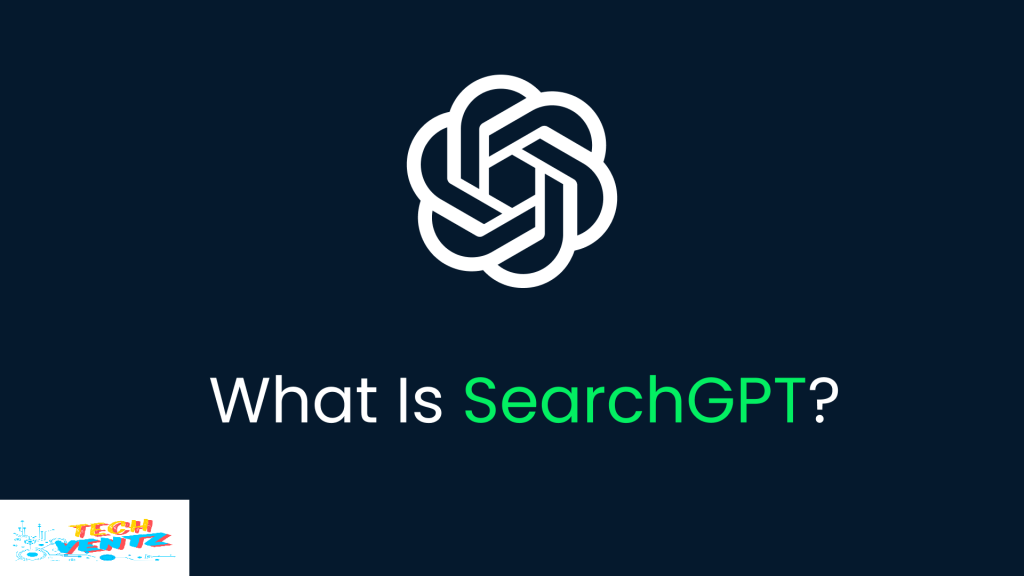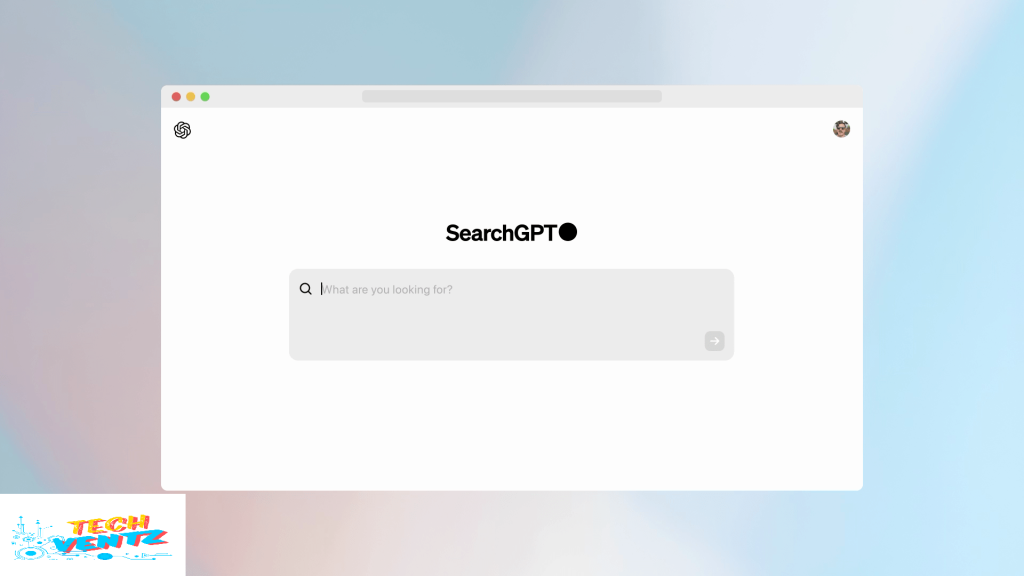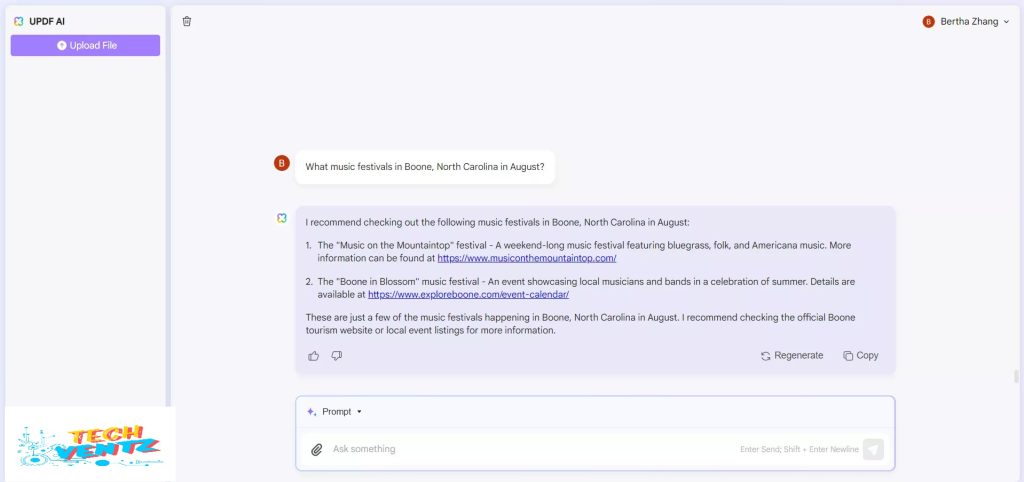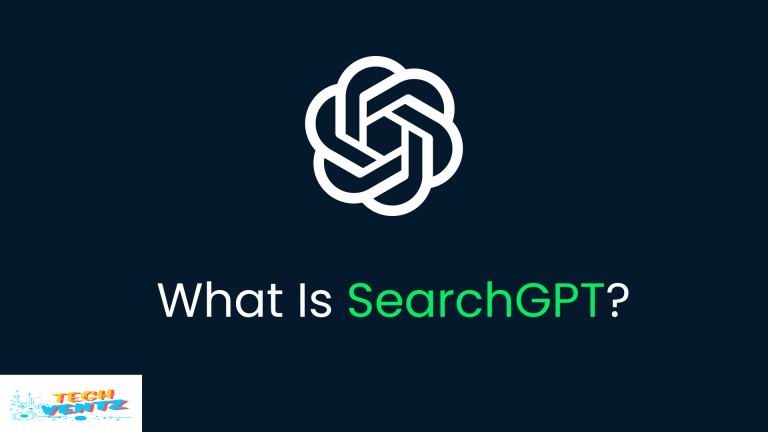SearchGPT is revolutionizing the way we interact with search engines. As an AI search engine developed by OpenAI, it aims to provide direct answers to users’ questions. This is a significant shift from the traditional model of presenting a list of links. SearchGPT’s approach is designed to make searching more efficient and user-friendly. This innovation positions SearchGPT as a strong competitor to Google.
Alongside other AI-driven tools like Perplexity and AI Overviews, SearchGPT is changing the search landscape. Let’s explore how SearchGPT compares to these tools and what the future holds. Search engines have evolved significantly over the years. The introduction of AI has been a game-changer.
SearchGPT is at the forefront of this evolution. It offers a unique approach by understanding user queries more deeply. This leads to more accurate and relevant answers. The competition between traditional and AI-driven search engines is heating up. This is great news for users, as it drives innovation and improves search experiences.

What Is SearchGPT?
SearchGPT is an advanced AI-powered search engine from OpenAI. It focuses on delivering direct answers to user queries. Unlike traditional search engines, it doesn’t just provide a list of links. Instead, it gives precise and concise responses. This makes the search process more efficient. Users get the information they need quickly and easily. SearchGPT aims to change how we search online.
The technology behind ChatGPT Search is impressive. It leverages powerful AI models to understand and answer questions. This goes beyond simple keyword matching. It understands the context of queries. This leads to more accurate answers. The goal is to make searching as natural and conversational as possible. This is a big step forward in the evolution of search engines.
Direct Answers
One of the standout features of SearchGPT is its ability to provide direct answers. When a user poses a question, SearchGPT delivers a straightforward answer. This eliminates the need to click through multiple links. Users save time and effort. The answers are clear and concise. This makes the search experience much more pleasant. It’s a major improvement over traditional search engines.
Direct answers are not just about convenience. They also improve accuracy. SearchGPT uses advanced AI to understand the query. This leads to more relevant responses. The information provided is precise and reliable. Users can trust the answers they receive. This builds confidence in the search engine. It’s a key reason why SearchGPT stands out.
Relevant Sources
SearchGPT ensures that the information it provides is accurate. It does this by citing relevant sources. Each answer comes with clear citations. This allows users to verify the information. They can explore the original sources if needed. This transparency enhances credibility. Users know where the information is coming from.
Citing sources is crucial for trust. It shows that SearchGPT values accuracy. Users can see that the answers are based on reliable information. This builds trust in the search engine. It also encourages users to explore further. They can dig deeper into the topics they are interested in. This makes SearchGPT not just a search tool but a learning tool.
Conversational Search
SearchGPT is designed for conversational search. Users can ask questions in natural language. The AI understands the context. It provides relevant answers. This makes searching more intuitive. It’s like having a conversation. This approach makes SearchGPT user-friendly.
Conversational search is a big step forward. It makes interacting with the search engine more engaging. Users don’t have to think about keywords. They can just ask questions naturally. This leads to a better user experience. The AI adapts to follow-up questions. This makes the search process smooth and efficient.
SearchGPT Vs. Google
Conversational vs. Keyword-Based Search
Traditional search engines like Google rely on keywords. Users need to enter specific terms. This can be limiting. SearchGPT, however, focuses on conversational search. Users ask questions naturally. The AI understands the intent. This leads to better results.
Conversational search is more user-friendly. It feels more natural. Users don’t have to think about the right keywords. They just ask questions. This makes the search process easier. It’s a big advantage of SearchGPT. It offers a more intuitive search experience.
Direct Answers vs. List of Links
Google provides a list of links. Users have to click through them. This can be time-consuming. SearchGPT gives direct answers. Users get the information they need quickly. This saves time and effort. It’s a major improvement.
Direct answers are more convenient. Users don’t have to sift through multiple links. They get precise information right away. This makes the search process more efficient. It’s a big advantage of this. It offers a better user experience. It’s a key reason why SearchGPT stands out.
AI-Powered Understanding vs. Keyword Matching
Google matches keywords in queries with keywords on webpages. This approach can miss nuances. SearchGPT uses AI to understand queries. It grasps the intent behind the question. This leads to more accurate answers. The AI-powered understanding is a big advantage.
Keyword matching can be limiting. It doesn’t always capture the full meaning. AI-powered understanding goes deeper. It considers the context of the query. This results in better answers. It’s a major improvement over traditional search engines. It’s a key feature of SearchGPT.
Dynamic Context vs. Isolated Searches
SearchGPT retains context. Users can ask follow-up questions. This makes the search process dynamic. Google treats each search independently. This can be limiting. The dynamic context of it is a big advantage. It offers a more fluid search experience.
Retaining context is important. It makes searching more interactive. Users can refine their queries easily. This leads to better results. It’s a major improvement over traditional search engines. It’s a key feature of Chat GPT Search. It enhances the user experience.
Up-to-Date Information vs. Crawling the Entire Web
SearchGPT uses real-time information. This ensures that answers are current. Google relies on web crawling and indexing. This can lead to outdated information. The real-time approach of SearchGPT is a big advantage. It provides up-to-date answers.
Current information is crucial. Users need accurate and timely answers. Real-time data ensures this. Web crawling can miss recent updates. Its approach is more reliable. It’s a major improvement. It enhances the accuracy of search results.

SearchGPT Vs. AI Overviews
Similarities
Both SearchGPT and AI Overviews use AI. They aim to improve search. They provide direct answers. This makes searching more efficient. Both tools cite sources. This enhances credibility. They focus on delivering accurate information.
AI is changing search engines. These tools are at the forefront. They offer more precise answers. Users get the information they need quickly. This is a major advantage. It makes searching easier. These similarities are important.
Differences
Certainly! Here are the expanded 1 to 2 line explanations for each feature comparison:
| Feature | SearchGPT | AI Overviews |
|---|---|---|
| Source Attribution | Provides clear citations with direct links. | Offers less clear source attribution. |
| Conversationality | Supports dynamic, interactive conversations. | Typically gives a single response. |
| Scope and Depth | Offers comprehensive, detailed answers. | Provides brief overviews of topics. |
| Transparency/Control | Allows publishers to control content use. | Less transparent with content usage. |
SearchGPT offers clear citations. Users can verify information easily. AI Overviews might not be as clear. This is a key difference. This also supports dynamic interactions. Users can ask follow-up questions. AI Overviews typically offer a single response.
SearchGPT aims to provide comprehensive answers. It draws from a wide range of sources. AI Overviews focus on key points. They guide users to further exploration. This also offers publisher controls. This is a transparency feature. AI Overviews are less transparent.
SearchGPT Vs. ChatGPT
Similarities
Both SearchGPT and ChatGPT share a conversational interface. Users interact with them through natural language queries. This makes both tools user-friendly. They are built on OpenAI’s language models. This gives them powerful capabilities. They understand and generate natural language.
These tools are versatile. They can handle various types of queries. They provide accurate and relevant responses. This makes them valuable. Users get the information they need. The conversational approach is a big advantage. It enhances the user experience.
Differences
Sure! Here are the expanded 1 to 2 line explanations for each feature comparison:
| Feature | SearchGPT | ChatGPT |
|---|---|---|
| Primary Purpose | Functions as a search engine. | Serves as a conversational AI. |
| Information Sources | Uses real-time web data for responses. | Relies on training data for answers. |
| Response Format | Provides concise, direct answers. | Generates flexible, varied text responses. |
| Use Cases | Ideal for fact-finding and research tasks. | Suitable for creative writing and brainstorming. |
SearchGPT is designed for search. It provides direct answers. ChatGPT focuses on conversation. It generates text responses. This is a key difference. SearchGPT uses real-time web data. This ensures current information.
ChatGPT relies on its training data. This might not be current. This offers concise answers. They are precise and reliable. ChatGPT’s responses are more flexible. It can generate longer text. This makes it suitable for creative tasks.
SearchGPT and ChatGPT Duo
Together, SearchGPT and ChatGPT offer a powerful combination. They complement each other. SearchGPT excels at delivering concise answers. ChatGPT assists with creative tasks. This combination provides a versatile toolkit. Users get the best of both worlds.
The duo offers a seamless experience. Users can switch between search and conversation. This enhances productivity. The tools work together effectively. They address different needs. This makes the duo valuable. It’s a powerful AI combination.
SearchGPT Vs. Perplexity
Similarities
Both platforms use AI to improve search. They make the process more intuitive. Users can ask follow-up questions. This creates a dynamic search experience. Both tools cite sources. This ensures transparency. Users can verify information.
AI is transforming search engines. These tools are leading the way. They provide accurate answers. The conversational approach is user-friendly. This makes searching easier. These similarities are important. They highlight the value of AI in search.
Differences
Sure! Here are the expanded 1 to 2 line explanations for each feature comparison:
| Feature | SearchGPT | Perplexity |
|---|---|---|
| Underlying Technology | Utilizes OpenAI’s advanced language models. | Employs proprietary AI technologies. |
| Answering Style | Provides direct and concise answers. | Offers more exploratory responses. |
| User Interaction | Retains context for ongoing conversations. | Follow-up questions often required. |
| Source Transparency | Maintains high transparency with sources. | Provides moderate source transparency. |
SearchGPT uses OpenAI’s language models. Perplexity uses proprietary AI. This is a key difference. this provides direct answers. They are concise and clear. Perplexity’s style is more exploratory.
ChatGPT Engine retains context. Users can ask follow-up questions seamlessly. Perplexity requires follow-up for more information. This can be less intuitive. Search GPT has high source transparency. Users know where information comes from. Perplexity’s transparency is moderate.
SearchGPT’s Competitive Edge
Leveraging Data and Algorithms
SearchGPT leverages vast amounts of user data. This improves its AI algorithms. The search results are accurate and relevant. This gives it a competitive edge. Google’s expertise in AI is also crucial. It helps maintain its lead. Both companies are innovating rapidly.
Data is a key asset. It enhances AI capabilities. Accurate algorithms improve search experiences. This is a major advantage. It drives innovation. The competition benefits users. They get better search results.
The Future of Search
The Evolution of Search Engines
Search engines have evolved dramatically. From simple keyword matching to sophisticated AI. The search landscape is continuously changing. SearchGPT represents the next step. It offers conversational and context-aware search. This is a significant advancement.
AI is revolutionizing search engines. It makes searching more efficient. Users get accurate and relevant answers. This enhances the user experience. The evolution is ongoing. SearchGPT is leading the way. It’s shaping the future of search.
Impact of SearchGPT and AI Overviews
SearchGPT and similar tools are changing how we search. Users benefit from more personalized results. This improves the overall experience. The competition drives innovation. This is good for users. It pushes boundaries. The future of search looks bright.
Personalized search results are a big advantage. They make searching more intuitive. Users get better answers. This enhances satisfaction. Innovation is ongoing. The competition is fierce. This benefits everyone.
Personalized and Context-Aware Search
Search engines are becoming more personalized. They use user data to deliver tailored results. This improves the user experience. SearchGPT is at the forefront. It offers context-aware search. This makes searching more intuitive.
Personalization is key. It makes searching more efficient. Users get relevant answers quickly. This enhances satisfaction. Context-aware search is a big step forward. It improves accuracy. SearchGPT is leading the way.
Ethical Considerations and Challenges
Data Privacy and Algorithmic Bias
The rise of AI in search brings ethical challenges. Data privacy is a major concern. Users need to trust that their data is safe. Algorithmic bias is another issue. AI can reflect societal biases. This needs to be addressed.
Privacy is crucial. Users need to feel secure. Bias can lead to unfair results. This undermines trust. Developers must tackle these issues. Ethical AI is essential. It’s a key challenge.
Transparency and Regulation
Transparency is important. Users need to know how AI works. This builds trust. Regulation is also needed. It ensures ethical AI use. Policymakers and developers must work together. This mitigates risks. It’s a collaborative effort.
Transparency enhances trust. Users need clear information. Regulation protects users. It ensures responsible AI use. Collaboration is key. It’s a shared responsibility. Ethical AI benefits everyone.
The Road Ahead
Innovations and User Experience
The future of search is bright. AI-driven tools like SearchGPT are leading the way. Innovations will continue. This benefits users. The search experience will improve. It’s an exciting time.
Innovation drives progress. Users get better tools. The search experience becomes more intuitive. AI is key. It transforms search engines. The future is promising.
Competition and Advancements
The competition is fierce. SearchGPT, Google, and others are innovating rapidly. This drives advancements. Users benefit from improved search tools. The future of search is dynamic. It’s a competitive field.
Competition pushes boundaries. It leads to better tools. Users get more accurate results. The search landscape is evolving. It’s an exciting field. The future is bright.

Conclusion
SearchGPT represents a major advancement. It offers direct answers and conversational search. This improves the user experience. Google remains a strong competitor. But AI-driven tools are shaping the future. The search landscape is evolving rapidly.
Users benefit from these advancements. They get better search experiences. The future looks bright. This is leading the way. It’s an exciting time for search engines. The evolution continues.
Frequently Asked Questions (FAQs)
What makes SearchGPT different from traditional search engines?
SearchGPT provides direct answers to queries. Traditional search engines provide a list of links. This makes SearchGPT more efficient. Users get the information they need quickly. It’s a major improvement. This also supports conversational search. This enhances the user experience.
How does SearchGPT ensure the accuracy of its answers?
SearchGPT cites relevant sources. This allows users to verify information. The citations are clear. Users can explore the original sources. This builds trust. The accuracy of answers is high. It’s a key feature of SearchGPT.
Can SearchGPT handle follow-up questions?
Yes, SearchGPT retains context. Users can ask follow-up questions. This makes the search process dynamic. It’s a major advantage. The AI understands the context. This leads to better results. It enhances the user experience.
Will SearchGPT replace Google?
SearchGPT offers a unique approach. But Google remains a strong competitor. Both have their strengths. This focuses on direct answers. Google has a vast infrastructure. The competition drives innovation. It’s good for users. The future of search is dynamic.
What ethical considerations are associated with AI-driven search engines?
Data privacy is a major concern. Users need to trust that their data is safe. Algorithmic bias is another issue. AI can reflect societal biases. Transparency is important. Users need to know how AI works. Regulation is needed. It ensures ethical AI use.


